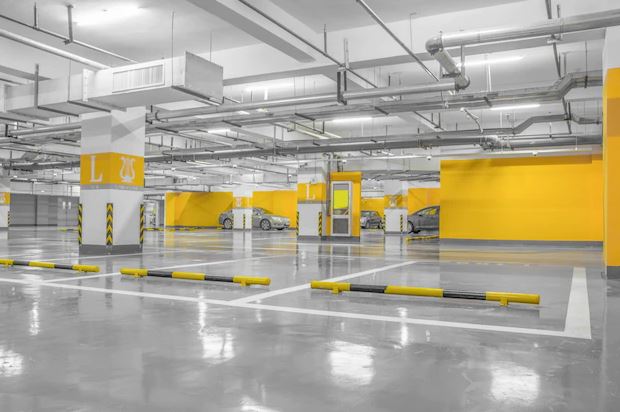Too many homeowners live with a messy, dirty garage and miss out on the potential to improve their living environment by upgrading their garage.
If you want to improve the usability of your garage and resolve frequent issues with its concrete floor, start by clearing and organizing it, and then select the best coating for its floor upgrade.
Interestingly, there is a wide range of garage floor coating options. Before choosing the solution that will best serve your long-term needs, it is important to be aware of the different floor coating solutions.
Different Types Of Garage Floor Coating And Paints
We’ve compiled a list of popular garage floor protection choices that homeowners frequently use while upgrading their garage floors.
1. Garage Floor Paints
These are similar to regular paints but frequently have properties that are unique to concrete surfaces that make them less vulnerable to damage, moisture, oil, and other potentially harmful chemicals or hard objects.
Although garage floor paints often aren’t as durable as epoxy or polycuramine, they’re perfect for purchasers on a budget or anyone wishing to add another layer of security to a sealed but unpainted or exposed garage floor.
2. Epoxy Floor Paints
When it comes to garage floors, epoxy-based coatings are quite popular. Compared to standard floor paint, an epoxy floor coating may cover floors with a thicker layer and stay much longer.
For a smooth application and a coat that stays for a long time, an epoxy primer may be necessary before rolling on a garage floor epoxy coating. In comparison to regular paint, these are typically a little more time and labor-intensive to apply.
Epoxy floor coatings are a popular choice as garage floor coatings in Aurora, IL.
3. Concrete Resurfacers
Concrete resurfacers are one of the solutions that will undoubtedly come across while you’re looking for options for protecting your garage floor.
Sand, Portland cement, polymer compounds, and other additives are used to make concrete resurfacers. To apply them, a brush, a trowel, or squeegee are commonly employed.
To produce a more dynamic floor appearance, colorful pigments can be added to the product’s natural cement grey tone.
4. Floor Sealers
Roll-on sealers are another common product used by homeowners to protect their garage flooring. They come in acrylic, latex, and urethane varieties and are reasonably priced and simple to apply.
But do they provide adequate flooring protection? As their name suggests, this product does give the floor a seal that can shield it from spills and water damage. However, when it comes to protecting a floor, sealers fall short of the capabilities of polyaspartic and epoxy floor coatings.
They don’t adhere to concrete as well as coatings of greater quality. They degrade more quickly.
Clear concrete sealers will not conceal imperfections from repairs and patches made to the floor prior to applying the sealer.
5. Garage Floor Tiles
Instead of simply upgrading your garage concrete floor, another suitable option can be to use interlocking floor tiles. Floor tiles are an affordable solution to hide an unsightly surface if the expense of fixing the damage to your floor exceeds your budget.
Although floor tiles won’t actually fix any problems regarding garage floor degradation, they do reduce additional surface deterioration from everyday wear and tear. For enhanced durability when set on a concrete floor, floor tiles are composed of plastic or tougher PVC materials.
Consider the much easier-to-work-with variety that has interlocking teeth instead of those that require glue and cement to install.

